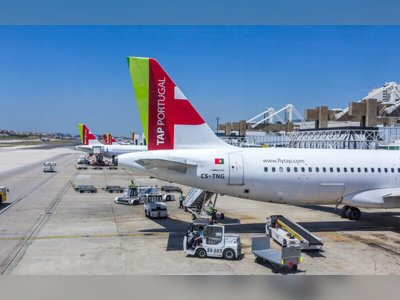Global Economy Faces Challenges Amid Rising Inflation and Supply Chain Disruptions
Several countries report escalating inflation rates, disrupting supply chains and impacting consumer prices.
The global economy is currently experiencing significant challenges characterized by rising inflation rates and continued supply chain disruptions.
Recent data indicate that inflation in the United States reached 8.2% in September, marking a sustained increase that has resulted in higher costs for consumers.
This rise in inflation is attributed to various factors, including persistent supply chain bottlenecks, increased energy prices, and the lingering effects of the COVID-19 pandemic.
In the Eurozone, inflation has surged to an all-time high of 9.9% as of October, driven by soaring energy costs and food prices.
This is impacting consumer sentiment and spending, which are central to economic recovery across the region.
The European Central Bank has responded by indicating a potential increase in interest rates to combat inflationary pressures.
In emerging economies, the situation mirrors trends seen in advanced nations.
Countries like Turkey are experiencing hyperinflation, with rates exceeding 83% in September, raising concerns about economic stability and the purchasing power of citizens.
In India, inflation measurements reveal a rate of 7.4%, prompting debates about monetary policy adjustments to stabilize the economy.
Supply chain issues, initially sparked by pandemic-related shutdowns, have proven to be long-lasting.
Manufacturing delays, fluctuations in shipping costs, and shortages of key components have all contributed to prolonged disruptions.
Analysts note that these factors are complicating recovery efforts as businesses struggle to meet consumer demands.
Energy prices have also influenced inflation globally, with crude oil prices recently hitting $90 per barrel amid geopolitical tensions and production cuts by OPEC+.
In Europe, natural gas prices have remained volatile, pushing energy costs higher for industries and households alike.
Governments around the world are reacting with policy measures to mitigate the impacts of inflation and supply chain uncertainties.
Various nations are assessing fiscal policies, while some are considering tariffs and trade agreements to stabilize market conditions.
The International Monetary Fund (IMF) has revised its growth forecasts for the global economy, projecting slower growth rates due to these ongoing challenges.
The organization emphasizes that the address of these issues is crucial for sustaining economic recovery in the post-pandemic era.
As these trends unfold, international markets remain on high alert, with investors closely monitoring economic data releases and central bank actions.
Recent data indicate that inflation in the United States reached 8.2% in September, marking a sustained increase that has resulted in higher costs for consumers.
This rise in inflation is attributed to various factors, including persistent supply chain bottlenecks, increased energy prices, and the lingering effects of the COVID-19 pandemic.
In the Eurozone, inflation has surged to an all-time high of 9.9% as of October, driven by soaring energy costs and food prices.
This is impacting consumer sentiment and spending, which are central to economic recovery across the region.
The European Central Bank has responded by indicating a potential increase in interest rates to combat inflationary pressures.
In emerging economies, the situation mirrors trends seen in advanced nations.
Countries like Turkey are experiencing hyperinflation, with rates exceeding 83% in September, raising concerns about economic stability and the purchasing power of citizens.
In India, inflation measurements reveal a rate of 7.4%, prompting debates about monetary policy adjustments to stabilize the economy.
Supply chain issues, initially sparked by pandemic-related shutdowns, have proven to be long-lasting.
Manufacturing delays, fluctuations in shipping costs, and shortages of key components have all contributed to prolonged disruptions.
Analysts note that these factors are complicating recovery efforts as businesses struggle to meet consumer demands.
Energy prices have also influenced inflation globally, with crude oil prices recently hitting $90 per barrel amid geopolitical tensions and production cuts by OPEC+.
In Europe, natural gas prices have remained volatile, pushing energy costs higher for industries and households alike.
Governments around the world are reacting with policy measures to mitigate the impacts of inflation and supply chain uncertainties.
Various nations are assessing fiscal policies, while some are considering tariffs and trade agreements to stabilize market conditions.
The International Monetary Fund (IMF) has revised its growth forecasts for the global economy, projecting slower growth rates due to these ongoing challenges.
The organization emphasizes that the address of these issues is crucial for sustaining economic recovery in the post-pandemic era.
As these trends unfold, international markets remain on high alert, with investors closely monitoring economic data releases and central bank actions.











